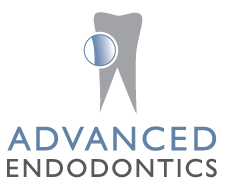The following study has appeared in various articles across the web this past week, demonstrating how diet soda can be as damaging to teeth as meth or crack cocaine. Should you properly clean your teeth daily and visit your dentist yearly, you should not suffer such horrible effects. Read on to learn what “not to do” when it comes to drinking soda. Thanks for visiting Advanced Endodontics. Enjoy reading!
Heavy consumption of diet soda can damage teeth as badly as methamphetamine or crack cocaine, a new study contends.
“You look at it side-to-side with ‘meth mouth’ or ‘coke mouth,’ it is startling to see the intensity and extent of damage more or less the same,” said Dr. Mohamed Bassiouny, a professor of restorative dentistry at the Temple University School of Dentistry in Philadelphia.
Methamphetamine, crack cocaine and soda — sweetened or not — are all highly acidic and can cause similar dental problems, Bassiouny said in a study published recently in the journal General Dentistry.
The acid in soda is in the form of citric acid and phosphoric acid, Bassiouny said. Without good dental hygiene, constant exposure can cause erosion and significant oral damage, he said.
In his study, he found that a woman in her 30s who drank 2 liters of diet soda daily for three to five years experienced tooth rot and decay remarkably similar to that suffered by a 29-year-old methamphetamine addict and a 51-year-old habitual crack cocaine user.
The younger man had used methamphetamine for three years, and often downed two or three cans of regular soda a day because the drugs made his mouth so dry. The older man reported an 18-year history of crack abuse.
The woman said concerns about weight gain led her to choose diet soda over regular, and admitted that she had not seen a dentist in many years, according to the study. She also associated sweetened beverages with a higher risk of tooth decay.
Her teeth were soft and discolored, with many destroyed by erosion. She usually sipped the beverage directly from a can or a bottle, and held the soda in her mouth before swallowing, Bassiouny said.
“She also mentioned that when doing so, she habitually leaned on her left side against the arm of the sofa while watching television,” he said. The “massive” damage to the left side of her mouth bore this out and resulted in what is called a collapsed bite.
“None of the teeth affected by erosion were salvageable,” Bassiouny said. The woman had to have all of her teeth removed and replaced with dentures.
Methamphetamine and crack are known to ravage the mouths of users, and the two drug abusers needed all of their teeth extracted.
Besides exposing teeth to damaging acid, these illegal drugs reduce the amount of saliva in the mouth, providing less opportunity for the acids to wash away. The drugs also cause systemic health problems that affect dental hygiene. Previous studies have linked “meth mouth” with rampant decay.
A group representing soft drink manufacturers said this case study should not be seen as an indictment of diet sodas generally.
“The woman referenced in this article did not receive dental health services for more than 20 years — two-thirds of her life,” the American Beverage Association said in a statement. “To single out diet soda consumption as the unique factor in her tooth decay and erosion — and to compare it to that from illicit drug use — is irresponsible.
Continue reading HERE.


